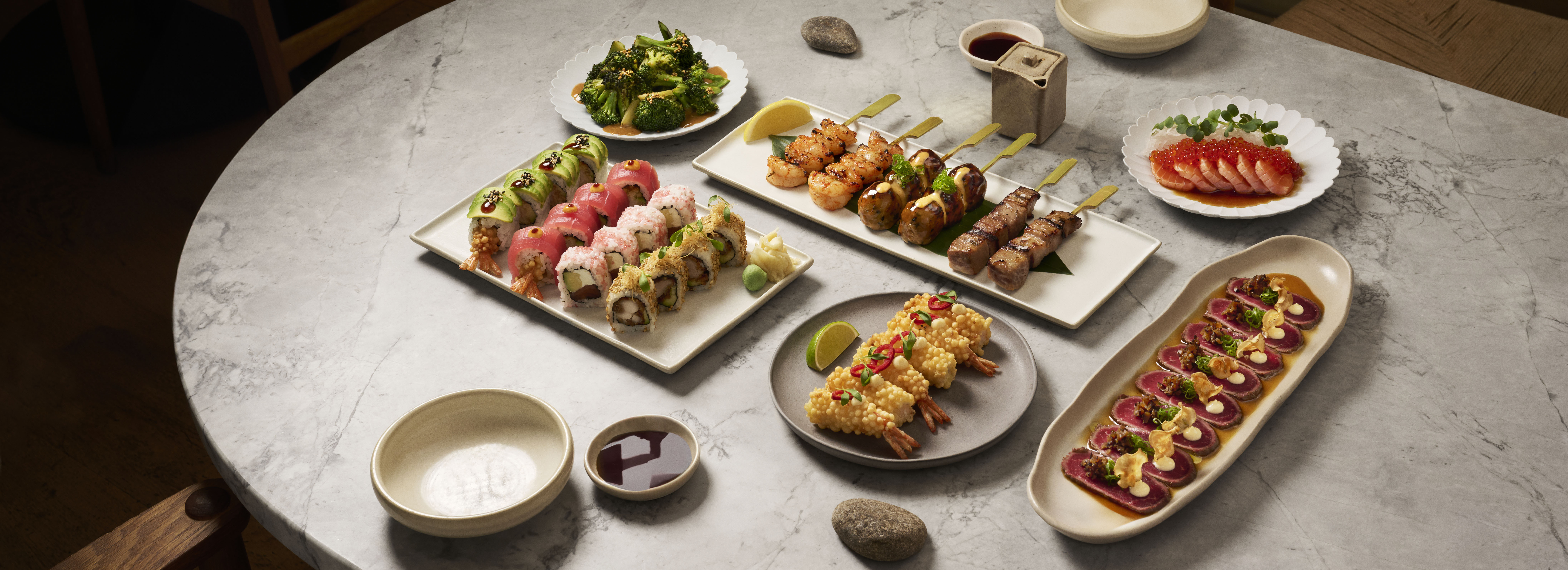Tuesday June 3rd, 2025
For this edition of Success Reflects, we sat down with Andreas Karlsson, CEO of premium casual restaurant group Sticks’n’Sushi. Having helped grow the brand across the UK and beyond, Andreas shares the leadership lessons that have shaped his career, what goes into choosing the perfect restaurant location, and why people are the heart of every great hospitality business.
1. Your career spans decades in the hospitality industry, including your time leading Wagamama. What leadership lessons have shaped you most?
When I first joined Wagamama, I worked directly with the founder, Alan Yau, and his family – it was a small, family-run business at the time. But when it was sold and brought under private equity ownership, the business professionalised, and I had the chance and privilege to grow with it.
One of the biggest lessons I learned was the value of nurturing internal talent. If someone had the drive and the curiosity to learn, we invested in them. That approach stuck with me and became a core part of how I lead.
Later on, when I was leading international expansion, I couldn’t always draw on UK-based teams for support as they were incredibly busy opening new restaurants, so I used that same mindset with our franchise partners – by developing our franchisee’s teams, helping them grow, and supporting other franchise partners growth, built a strong culture across borders.
2. Sticks’n’Sushi has grown significantly under your leadership. What’s the key to expanding the Sticks’n’Sushi brand successfully?
First, you need to really believe in your product. When you go into new markets, there will be challenges – you can’t second-guess everything. You’ve got to back yourself. If you doubt your brand’s core DNA and product, you need to ask yourself if you are confident to take the leap of faith.
Second, execution is everything. We don’t franchise. Every restaurant we operate is owned and run by us. So, if something goes wrong, it’s on us. But that also means when things go right, it’s a huge win for the team.
We also avoid cookie-cutter formats. While our menu is consistent, each restaurant is bespoke – from the architecture to the interiors, each one is designed with its local context in mind. Our aim is that even if two restaurants look completely different, you’ll still know you’ve walked into a Sticks’n’Sushi.
3. What goes into choosing the right location?
You have to really understand your guest. Are they locals? Business professionals? Domestic and international tourists? Often, it’s a mix – and we try to find areas that reflect that.
Our restaurants in Richmond, Wimbledon, Greenwich and Kingston are in strong residential neighbourhoods, but they also pull in weekend and evening trade. We’re also in cities like Cambridge and Oxford – affluent towns with strong ties to London.
What we look for are locations that give us a consistent seven-day trade, not just weekday lunches. Add in the ability to support both lunch and dinner services, plus ideally some strong take-away and delivery demand on top – and you’ve got a winner.

4. What’s your go-to dish from the menu?
That would have to be the hiramasa kama. It’s a very limited dish – we only serve a few each day. It’s the collar of yellowtail, simply grilled with salt, pepper, lemon, served with plain rice and miso soup. It’s not quite sushi, not quite yakitori – it sits between the two. Add a little crunchy chilli paste with your bowl of rice and I could eat it for the rest of my life!
5. Where do you hope Sticks’n’Sushi will be five years from now?
I’d love to sit down again and talk about all the incredible people running our restaurants – the ones who packed their bags, took a leap of faith, and built their careers with us.
And, of course, I hope we’ve opened some brilliant new locations by then. But more important than the number of restaurants is the number of people we’ve helped grow. Hospitality is all about people – it’s what makes this industry special.
6. We supported Sticks’n’Sushi in your latest growth phase. Can you tell us a bit about that?
Absolutely. Since our deal last year, we’ve opened in Islington and Battersea and have more in the pipeline. Working with OakNorth has been more than just about funding.
The team really understands the hospitality sector. They bring not just capital, but insight – on locations, other operators, market data and trends. When you work with a lender who knows your industry inside out, it’s incredibly valuable.
While we aim to fund as much growth as we can through our own operations, the reality is that timing doesn’t always align. That’s why having a partner like OakNorth, who bring not just capital, but also insight and support that go well beyond funding, really matters.